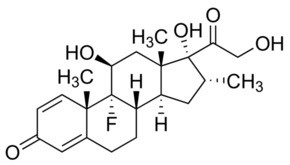Cookie preferences
This website uses cookies, which are necessary for the technical operation of the website and are always set. Other cookies, which increase the comfort when using this website, are used for direct advertising or to facilitate interaction with other websites and social networks, are only set with your consent.
Configuration
Technically required
These cookies are necessary for the basic functions of the shop.
"Allow all cookies" cookie
"Decline all cookies" cookie
CSRF token
Cookie preferences
Currency change
Customer-specific caching
FACT-Finder tracking
Individual prices
Selected shop
Session
Comfort functions
These cookies are used to make the shopping experience even more appealing, for example for the recognition of the visitor.
Note
Show the facebook fanpage in the right blod sidebar
Statistics & Tracking
Affiliate program
Conversion and usertracking via Google Tag Manager
Track device being used

If you have any questions, please use our Contact Form.
You can also order by e-mail: info@biomol.com
Larger quantity required? Request bulk
You can also order by e-mail: info@biomol.com
Larger quantity required? Request bulk
An anti-inflammatory glucocorticoid. Inhibits the expression of the inducible but not the... more
Product information "Dexamethasone, 97+%"
An anti-inflammatory glucocorticoid. Inhibits the expression of the inducible but not the constitutive nitric oxide synthase in vascular endothelial cells (IC50=5 nM). Enhances active cation transport in aortic smooth muscle cells by stimulating the Na+-K+ pump. Has anti-inflammatory and anti-rheumatic properties. Induces apoptosis in human thymocytes. In general, 500-1000nM of dexamethasone is sufficient to induce apoptosis following a 6-hour incubation at 37°C. Dexamethasone is used to treat many inflammatory and autoimmune conditions, e.g., rheumatoid arthritis. It is also given to cancer patients undergoing chemotherapy, to counteract certain side-effects of their antitumor treatment. Dexamethasone can augment the antiemetic effect of 5-HT3 receptor antagonists like ondansetron. It is also given in small amounts (usually 5-6 tablets) before and/or after some forms of dental surgery, such as the extraction of the wisdom teeth, an operation which often leaves the patient with puffy, swollen cheeks. In brain tumors (primary or metastatic), dexamethasone is used to counteract the development of edema, which could eventually compress other brain structures. Dexamethasone is also given in cord compression where a tumor is compressing the spinal cord. , Dexamethasone is also used in certain hematological malignancies, especially in the treatment of multiple myeloma, in which dexamethasone is given alone or together with thalidomide (thal-dex) or a combination of adriamycin and vincristine (VAD). It is injected into the heel when treating plantar fasciitis, sometimes in conjunction with acetonide. It is useful to counteract allergic shock, if given in high doses. It is present in certain eye drops and as a nasal spray (Dexacort(R)). Dexamethasone can be used in the context of congenital adrenal hyperplasia, to prevent virilisation of a female fetus. If one or both parents are carriers of mutations to the CYP21A gene, the mother may start dexamethasone treatment within 7 weeks of conception. At the 12th week, a chorionic villus sample will determine whether the fetus is male (in which case the dexamethasone is stopped) or female. Subsequent DNA analysis can then reveal whether the female fetus is a carrier of the mutation, in which case dexamethasone treatment must continue till birth. The side-effects for the mother can be severe and the long-term impact on the child is not clear. Dexamethasone is also used in a diagnostic context, namely in its property to suppress the natural pituitary-adrenal axis. Patients presenting with clinical signs of glucocorticoid excess (Cushing's syndrome) are generally diagnosed by a 24-hour urine collection for cortisol or by a dexamethasone suppression test. During the latter, the response of the body to a high dose of glucocorticoids is monitored. Various forms are performed. In the most common form, a patient takes a nighttime dose of either 1 or 4 mg of dexamethasone, and the serum cortisol levels are measured in the morning. If the levels are relatively high (over 5ug/dl or 150nmol/l), then the test is positive and the patient has an autonomous source of either cortisol or ACTH, indicating Cushing's syndrome. Longer versions rely on urine collections on oral dexamethasone over various days. , Appearance:, White crystalline powder, Purity: >99%, Melting Point: 262-264 °C(lit.), Loss on Drying: <0.5%, Solubility: Dioxane (Slightly, Heated), DMSO (Slightly), Methanol (Slightly), , Ethanol (1mg/ml), Specific Rotation: +72° to +80°, Storage and Stability: May be stored at 4°C. Stable for 12 months. For maximum recovery of product, centrifuge the original vial prior to removing the cap., , Meets USP Specifications
| Supplier: | United States Biological |
| Supplier-Nr: | D3221-96 |
Properties
| MW: | 392.50 D |
| Formula: | C22H29FO5 |
| Format: | Molecular Biology Grade |
Database Information
| CAS : | 50-02-2| Matching products |
| KEGG ID : | K05771 | Matching products |
Handling & Safety
| Storage: | +4°C |
| Shipping: | +20°C (International: +20°C) |
| Signal Word: | Warning |
| GHS Hazard Pictograms: |
|
| H Phrases: | H315, H317, H319, H334, H335 |
Caution
Our products are for laboratory research use only: Not for administration to humans!
Our products are for laboratory research use only: Not for administration to humans!
Information about the product reference will follow.
more
You will get a certificate here
Viewed



